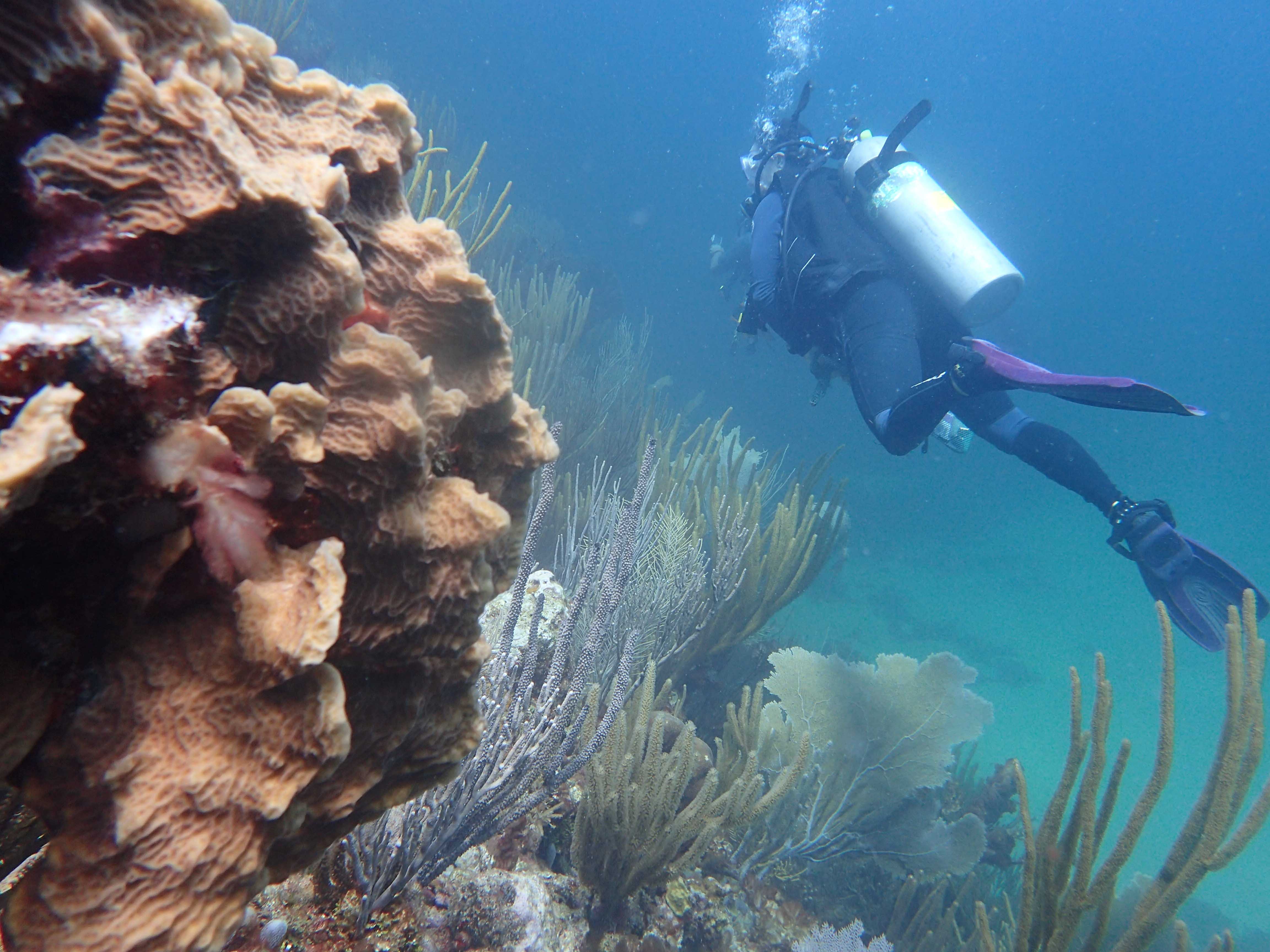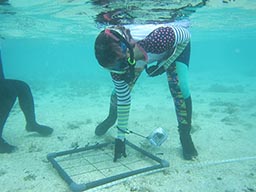- ABOUT US
- PROGRAM AREAS
- CONSERVATION APPROACH
- EDUCATION
- MULTIMEDIA
U.S. Virgin Islands Divers are Eyes on Coral Reef Health

Coral reefs in the U.S. Virgin Islands—with their inspiring coral structures, colorful fish and other vibrant marine life—provide livelihood and recreation for many resident divers. A recent NOAA study demonstrates the potential value of using the local ecological knowledge gathered from occupational SCUBA divers to improve our understanding of coral reef conditions.
Because of their significant ecological, cultural and economic value, healthy coral reefs improve the well-being of communities and the economy in the U.S. Virgin Islands. Therefore, it is important that the coral reefs stay healthy. Monitoring the health of coral reef ecosystems typically calls for the extensive collection of ecological and biological data, which can be costly and labor intensive.
Using participatory mapping, scientists with NOAA's National Centers for Coastal Ocean Science and the University of Queensland gathered information from occupational divers across the U.S. Virgin Islands. Information gathered helped scientists understand the ecological conditions, threats, and uses of popular reefs in the region.
Study findings indicate that participatory mapping holds promise as a cost-effective alternative or supplement to traditional monitoring programs. The information acquired from knowledgeable divers can help resource managers prioritize and direct investments for future monitoring and management activities.
For more information, please visit: https://coastalscience.noaa.gov/projects/detail?key=187.
About Us

The NOAA Coral Reef Conservation Program was established in 2000 by the Coral Reef Conservation Act. Headquartered in Silver Spring, Maryland, the program is part of NOAA's Office for Coastal Management.

The Coral Reef Information System (CoRIS) is the program's information portal that provides access to NOAA coral reef data and products.
Work With US
U.S. Coral Reef Task Force
Funding Opportunities
Employment
Fellowship Program
Contracting Assistance
Graphic Identifier
Featured Stories Archive

Access the archive of featured stories here...
Feedback
Thank you for visiting NOAA’s Coral Reef Conservation Program online. Please take our website satisfaction survey. We welcome your ideas, comments, and feedback. Questions? Email coralreef@noaa.gov.
Stay Connected
Contact Us
NOAA’s Coral Reef Conservation Program
SSMC4, 10th Floor
1305 East West Highway
Silver Spring, MD 20910
coralreef@noaa.gov
